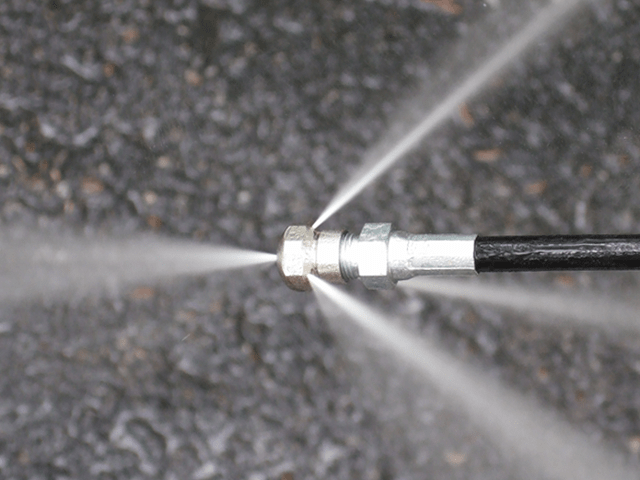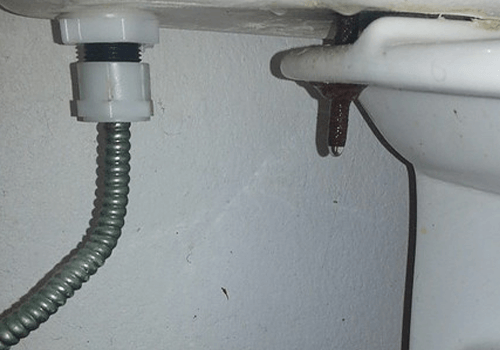Avoid the Freeze: 5 Essential Hacks to Keep Your Pipes From Bursting This Winter
Avoid the Freeze: 5 Essential Hacks to Keep Your Pipes From Bursting This Winter
Blog Article
The publisher is making a number of great pointers related to How to Prevent Frozen Pipes as a whole in this post following next.

All house owners who live in pleasant climates should do their ideal to winterize their pipes. Failing to do so can mean calamity like frozen, split, or burst pipes.
Attempt a Hair Clothes Dryer or Heat Gun
When your pipelines are almost freezing, your trusty hair dryer or warmth weapon is a godsend. Bowling hot air directly right into them may help if the hot towels do not help remove any resolving ice in your pipelines. Nevertheless, do not use various other things that produce straight flames like an impact torch. This can cause a larger catastrophe that you can not control. You might wind up destructive your pipelines while trying to thaw the ice. And in the future, you may also end up melting your residence. So be cautious!
Open Closet Doors Hiding Plumbing
When it's chilly outside, it would certainly be valuable to open closet doors that are camouflaging your pipelines. Doing this small trick can keep your pipelines warm and also restrict the potentially unsafe results of freezing temperatures.
Take Some Time to Cover Exposed Pipeline
One easy and clever hack to warm up cold pipes is to cover them with warm towels. You can cover them first with towels. After securing them in place, you can put boiling water on the towels. Do it gradually to allow the towels take in the liquid. You can additionally make use of pre-soaked towels in hot water, just do not forget to use safety gloves to protect your hands from the warm.
Activate the Faucets
When the temperature declines and also it seems as if the icy temperature level will certainly last, it will aid to turn on your water both inside your home and also outdoors. This will keep the water streaming through your plumbing systems. You'll finish up squandering gallons of water this method.
When Pipes are Frozen, close Off Water
If you observe that your pipelines are totally frozen or almost nearing that phase, turn off the major water shutoff immediately. You will usually find this in your cellar or laundry room near the heating system or the front wall surface closest to the street. Turn it off right away to avoid further damages.
Do not fail to remember to close outside water sources, also, such as your connection for the yard residence. Doing this will protect against additional water from filling up your plumbing system. With even more water, more ice will stack up, which will at some point lead to break pipes. If you are not sure concerning the state of your pipelines this wintertime, it is best to call an expert plumber for an examination. Taking this positive approach can conserve you countless dollars in repairs.
All homeowners who live in pleasant climates need to do their ideal to winterize their pipes. Failing to do so can mean catastrophe like icy, split, or ruptured pipes. If the warm towels do not assist displace any resolving ice in your pipelines, bowling hot air straight into them might aid. Turn off the major water shutoff quickly if you see that your pipelines are completely frozen or nearly nearing that phase. With even more water, even more ice will certainly stack up, which will ultimately lead to rupture pipelines.
PREVENT YOUR PIPES FROM FREEZING THIS WINTER
A Leading Cause of Property Damage
When the weather is taking a deep nose dive into the cold dreary days, the risk of your pipes freezing and potentially bursting skyrockets. Unfortunately, during these cold dreary months, burst pipes are the most common denominator for property damage. The pipes that are most at the risk are those that are in areas where it is most cold in your home. For instance, pipes located in interior places such as basements, attics, and your garage. Unfortunately, that doesn’t mean that the pipes running through your cabinets or exterior walls can’t freeze. Good news, however, is that you can do things to help prevent pipes from freezing.
How to Prevent Pipes From Freezing
Once the temperature starts to drop during the winter, you should be taking the proper measures needed to ensure that your pipes stay warm and that there is circulation of water through them. Some steps that experts may recommend could go against your better judgement when it comes to saving water and heat. However, it would go without saying that when expenses are compared, damaged pipes could put a bigger dent in your wallet than a water bill.
What Can I Do?
Keep your garage door closed. This is very important, especially if you have water supply lines running through your garage. Open your kitchen and bathroom cabinets to allow warm air to circulate through them. Allow air circulation throughout your home. Keeping the interior doors open will once again allow the warm air to circulate inside your home. Ensure your thermostat is running the same temperature throughout the night and day. If you plan to be away from home during the cold months, set your temperature no lower than 55° F. This should provide enough heat to keep the pipes warm and prevent any remaining water inside the pipes from freezing. For more of a long-term solution, add insulation to attics, basement, and other crawl spaces around your home. By allowing your faucet to drip, it will alleviate pressure in the system. This is important because the pressure that is created between the blockage and the faucet can potentially cause the pipes to burst. Allowing the faucet to drip will prevent the pressure from building up, therefore keeping the pipes from bursting. Seal any cracks, openings, and crawl spaces around your home to prevent cold air from coming inside. This keeps your pipes-not to mention your home-warmer and less susceptible to issues caused by freezing temperatures. For the pipes in your home that are easily accessible, applying electrical tape to them might prevent them from freezing over. This is a quick fix, as you can apply the tape directly to the pipe. There are two options for heating tapes. One turns on and off by itself when it senses heat is needed. The other type of heating tape needs to be applied when heat is needed and removed when not necessary. If you have exposed pipes in your home, you can check this website to take a look at a few options that would be available at a shop near you.

I ran across that post on How to stop pipes from freezing during the winter while exploring the search engines. So long as you enjoyed our blog entry please make sure you remember to share it. Thanks a lot for going through it.
Book Maintenance Report this page